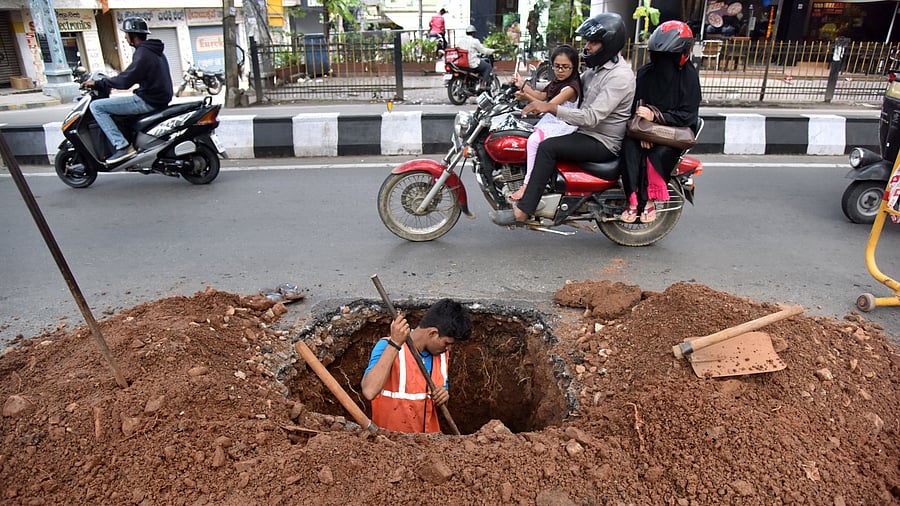
Road-cutting for fixing leaking water pipelines has become common in Bengaluru. The picture is from New BEL Road.
Credit: DH photo
Bengaluru: Nearly 200 km of water pipelines, laid nearly 40 years ago, will finally be replaced as the Bangalore Water Supply and Sewerage Board (BWSSB) has begun a new project to reduce leakages.
The project is a part of the BWSSB’s plan to bring down Unaccounted for Water (UfW) to below 10%.
At present, UfW is close to 28%, meaning that the city loses 28% of its water supplies to leakages and theft.
The BWSSB has cut down over 40,000 illegal connections and is identifying many more to cut down the losses. However, officials said, to bring down the UfW levels further, it is important to identify leakages. Replacement of pipelines is hence crucial. The project is taken up at a cost of Rs 200 crore.
“Many of these cast-iron pipelines were laid nearly 40 years ago. Owing to this, leakages are bound to happen. Hence, to bring down the UfW, we have taken up this project to completely replace the pipelines in phases,” explained Dr Ramprasat Manohar V, chairman, BWSSB.
Most of these projects are being taken up in the core areas of the city where the pipelines are old. Areas where pipeline replacement is planned include Shivajinagar, Byatarayanapura, CV Raman Nagar and Chamarajpet.
In 2018-19, the BWSSB had taken up a similar project where nearly 680 km of pipelines were replaced. The project’s success prompted the officials to take up more such works.
However, even after completion of the planned 200 km, nearly 3,000 km of old pipelines will remain and the BWSSB plans to take them up in phases.
“We could recover our investment within three years because we could prevent leakages and save water. Hence, based on the availability of funds, we took up the next phase,” Manohar added.
Given the poor state of roads in the city and the ongoing monsoon, citizens urged the BWSSB to ensure that commuters are not inconvenienced.
“We understand that they need to take up work, but if they dig up the roads now, road users will be inconvenienced and roads will become risky. I hope they have planned the project to ensure commuters are not put at risk,” said Suhas R, a techie.